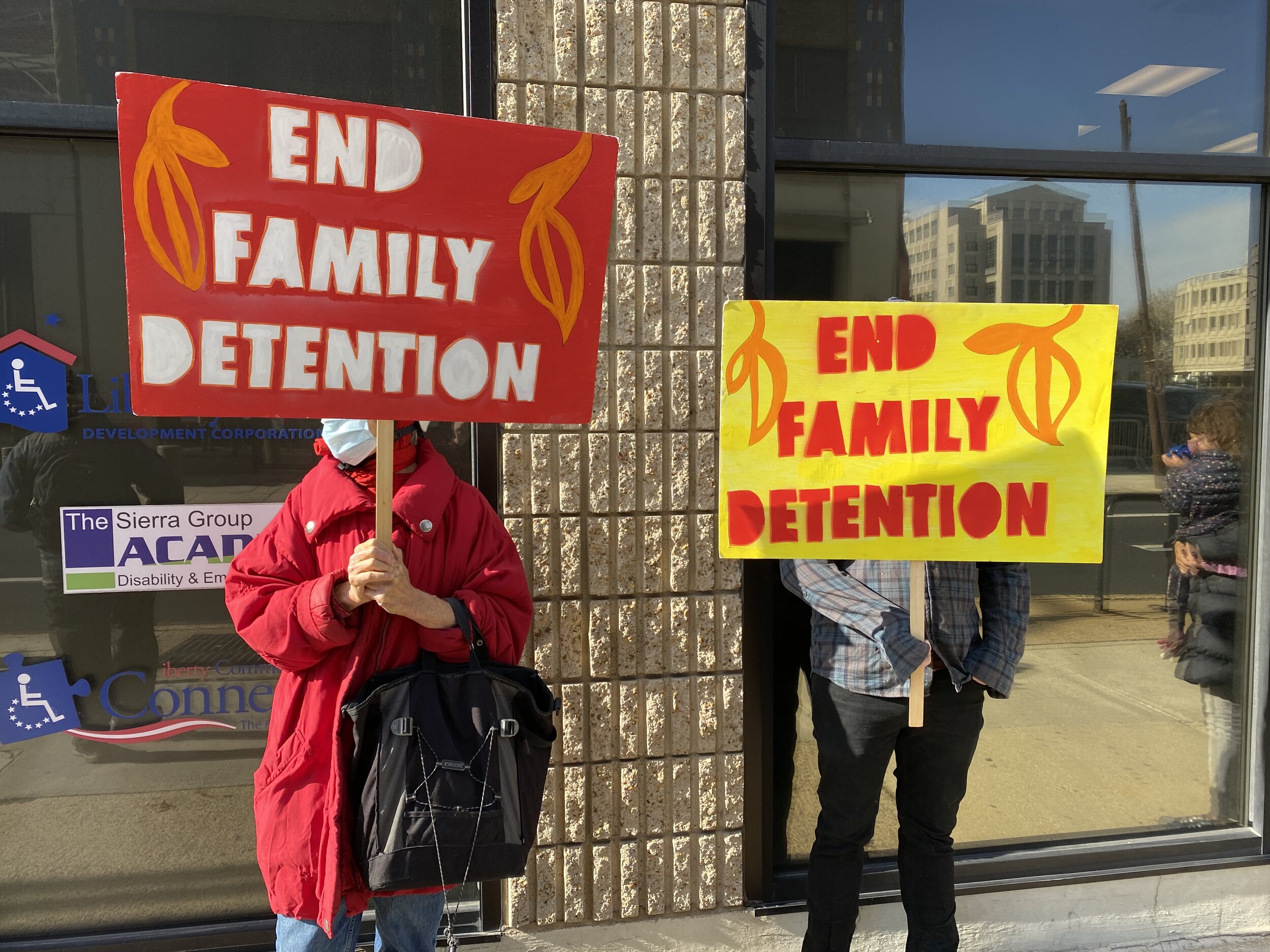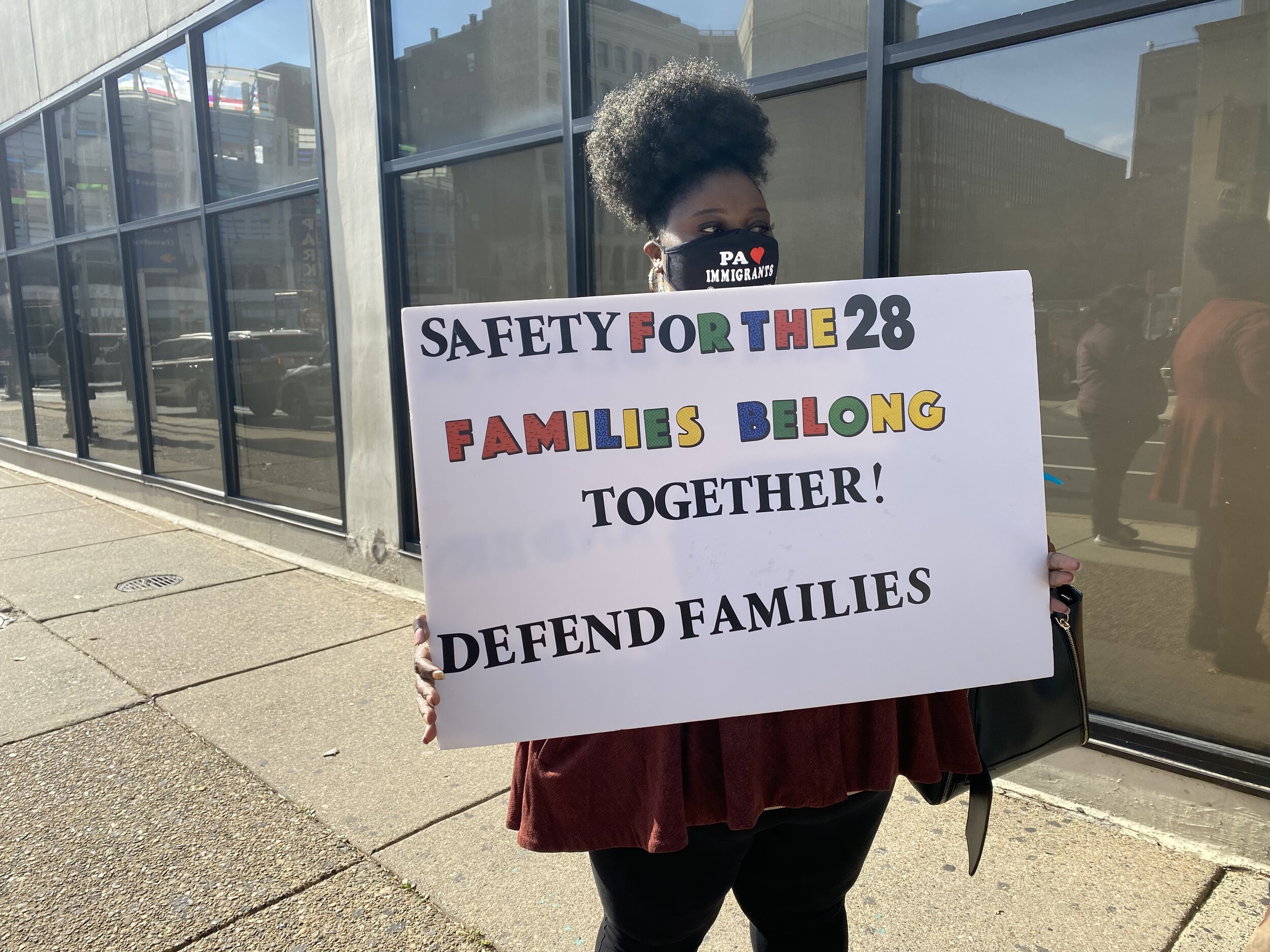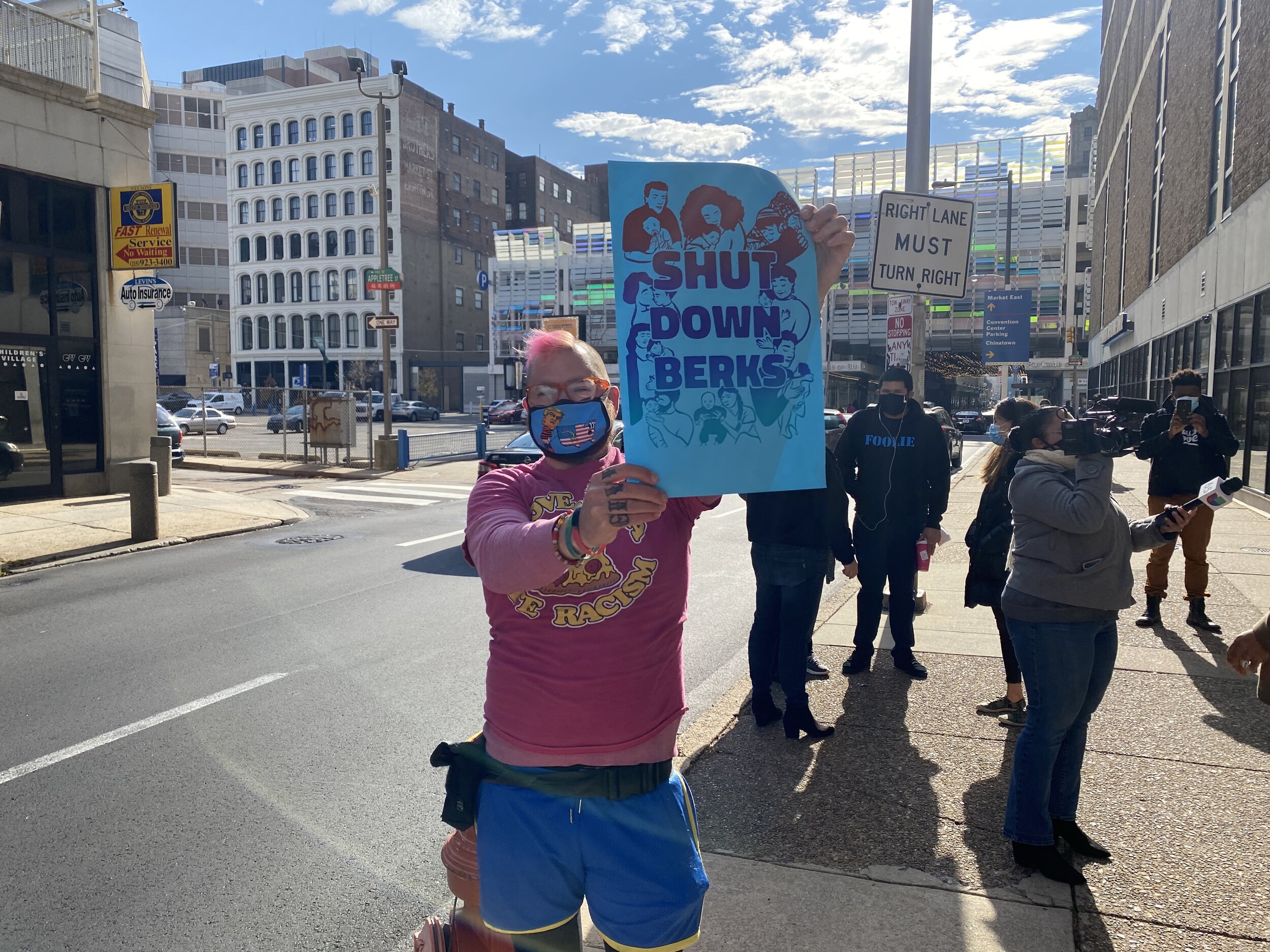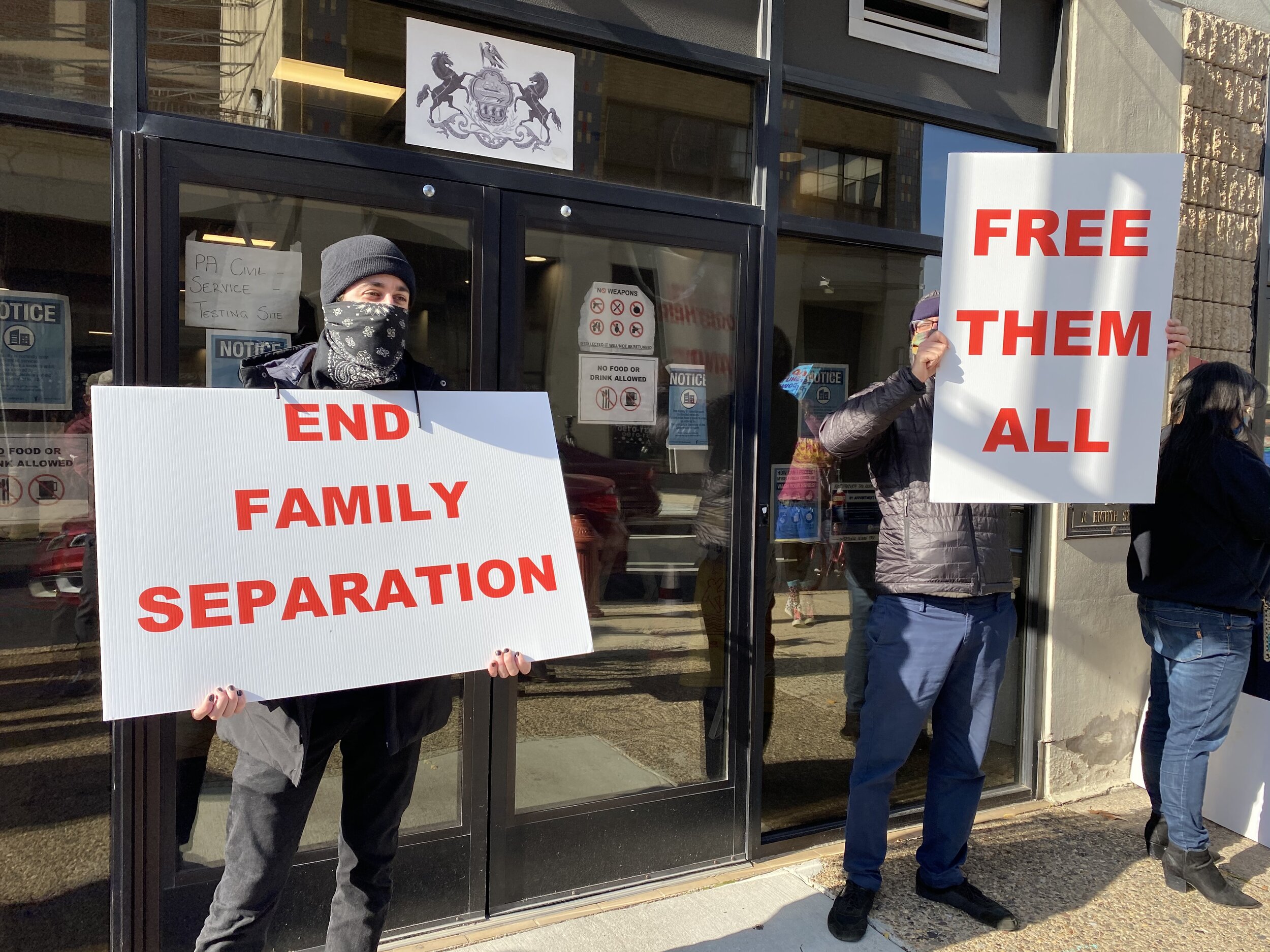On November 25 a few dozen people stood outside the U.S. Immigration and Customs Enforcement (ICE) office around the corner from Chinatown to protest the deportation of 23 families, which include 28 children. Two of those families are being held at Berks County Residential Center, ICE’s Philadelphia Field Office, located in Leesport, PA, about 70 miles away from the city. At the protest led by the Shut Down Berks Coalition, it was announced that the families facing deportation would be granted ten more days of detention before being deported.
Both families in the detention center are made up of Haitians who fled their homeland to Chile, but, upon arrival they were met with anti-immigrant attacks, so they sought asylum in the United States. For the safety of the detained, their identities will remain anonymous.
Guerline Jozef, a member of the Haitian Bridge Alliance and the Black Immigrants Bail Fund, has been in contact with the families for six months of the eight months they have been detained. Both families awaiting deportation consist of three people each: a mother, father and young child. One couple’s child is three; the other is two.
“One family … were both university students in Haiti protesting human rights abuses … unfortunately they were targeted and the husband was beaten and left for dead,” says Jozef.
“They had no home in Haiti, and they couldn’t stay in Chile. Upon arrival to the border, they were detained in San Diego then taken to the Icebox and held for six days,” she explains .
The Icebox, also known as “La Hielera” is an infamous holding cell at the southern border, known for its harsh conditions where border detainees await transfer to ICE custody. “They spent six days in that cold room. The baby got really sick—diarrhea, vomiting and all of that. Mind you, they did not have access to a shower, soap or a toothbrush, in this room with many other parents and children,” says Jozef.
After their time in the Icebox, they were taken to Los Angeles and then, in March, flew on a commercial airline to Philadelphia. They have been detained at the Berks County Residential Center ever since.
The father of the infant said in a phone call, “It is extremely painful to watch my baby growing up in this jail where I have absolutely no control over his wellbeing. He is often sick and unable to eat but I am forced to watch my baby crying and can’t even help him.”
Both families are scheduled to be deported to Haiti on December 5. “We are terrified because if we get deported back to Haiti, we might get killed. We barely escaped before,” said one woman detained at Berks.
Haiti has a long history of political unrest. Protests over corruption and inequality have resulted in a crackdown on those who oppose President Jovenel Moïse.
Upon deportation these families “would be handed to a government who already harmed them,” says Bridget Cambria, one of the lawyers representing the families and executive director of Aldea The People’s Justice Center.

Their deportation comes under the Trump Administration’s Safe Third Country Transit Ban which was deemed unlawful but practices still remain intact. The ban designated that migrants who traveled through another country to reach the United States are ineligible for asylum. In the case of these Haitian families, going through Chile, then trekking through the Americas renders them ineligible for asylum.
“These are families with no adverse history. They have family in the U.S. where they could live as they go through the immigration process. They pose no threat or risk of danger or flight,” says Cambria.
Officials at Berks County Residential Center declined to comment when asked for information about this story.












